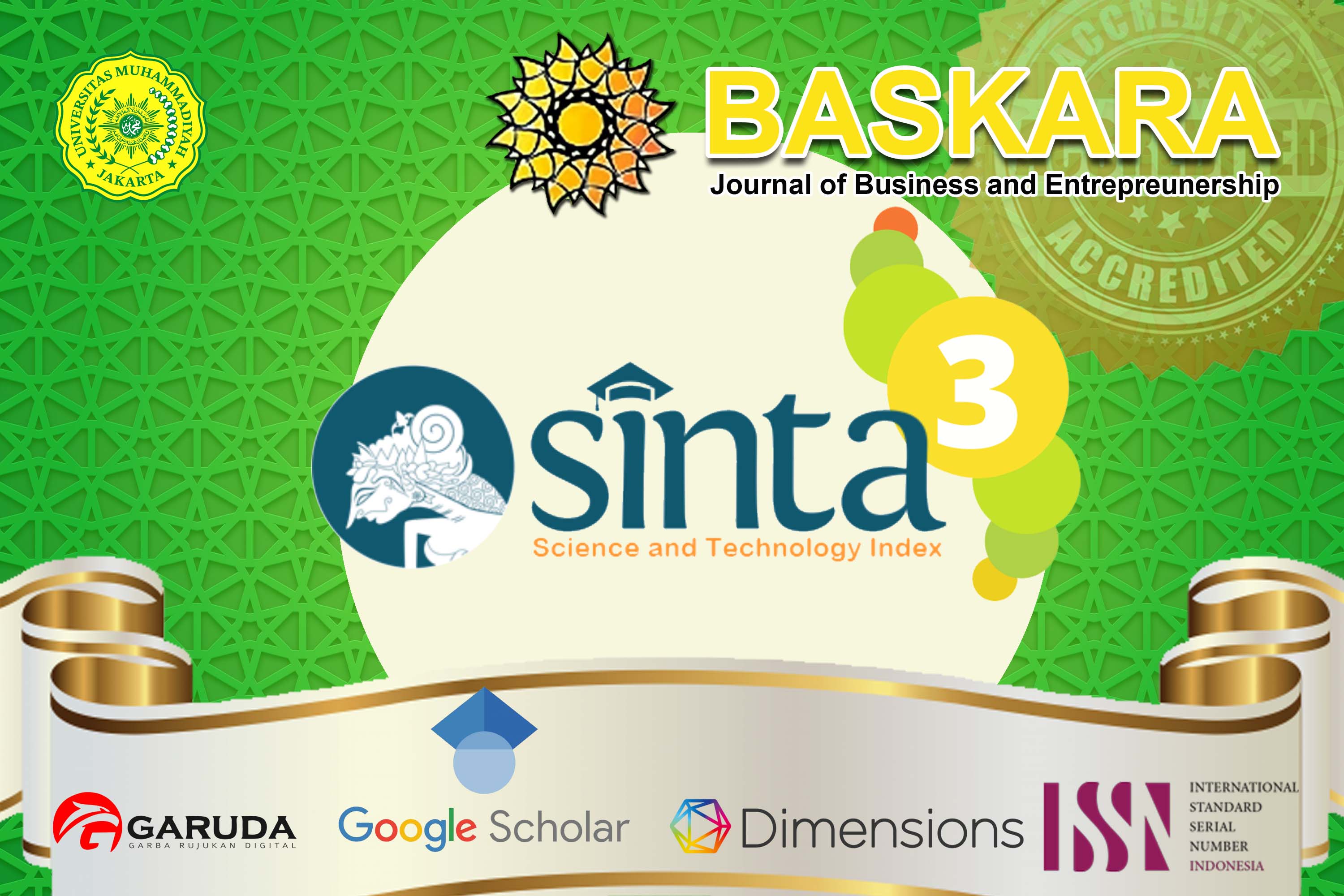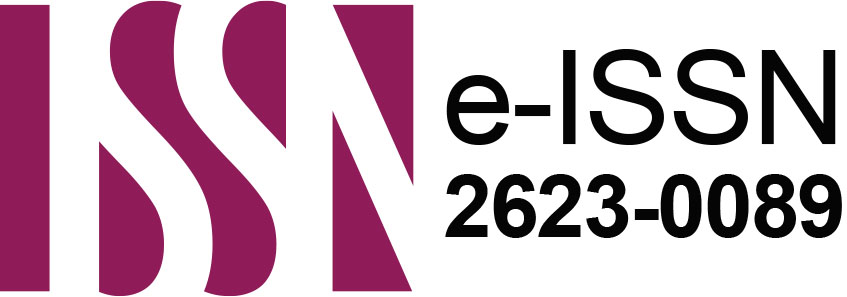Improvizing West Java MSMEs Using Quality Service Gaps Model
Abstract
Keywords
Full Text:
PDFReferences
Basuki, T. I., & Dwi R.T., D. R. (2023). Kajian Analisis Strategi Peningkatan Daya Saing UMKM. Community Development Journal, 4(3), 5596–5600. https://doi.org/10.31004/cdj.v4i3.17118
Bitner, M. J., Ostrom, A. L., & Morgan, F. N. (2008). Service Blueprinting: A Practical Technique for Service Innovation. California Management Review, 50(3), 66-94.
Brown, A., Clark, B., & Evans, C. (2020). Die Rolle der unternehmerischen Orientierung bei der Dienstleistungsinnovation von KMU. Journal of Small Business Management, 58(3), 555-578.
Ferdinand, A. T., Kinasih, R. S., Kusumawardhani, A., Idris, I., Rini, I., & Hersugondo, H. (2023). Culinary-Gastronomic Value Advantage in a Competitive Dynamic Market: A Service-Dominant Logic Perspective. Journal of Economics, Business, and Accountancy Ventura, 25(3), 369–369. https://doi.org/10.14414/jebav.v25i3.3356
Fitzsimmons, D. (2008). Digital Portfolios in Visual Arts Classrooms. Art Education, 61(5), 47-53.
Garcia, D., & Patel, S. (2021). Herausforderungen und Chancen der Dienstleistungswissenschaft für KKMU. Zeitschrift für die Dienstleistungsbranche, 41(4), 497-514.
Ghina, A., & Gushendri, A. H. E. (2022). Analisis Hambatan Improvisasi Berwirausaha pada Usaha Kuliner di Kota Padang. Cemerlang: Jurnal Manajemen dan Ekonomi Bisnis, 2(4), 270-283. https://doi.org/10.55606/cemerlang.v2i4.297
Gronroos, C dan Voima, P. (2013). Critical Service Logic: Making Sense of Value Creation and Co-Creation. Journal of the Academy of Marketing Science, 41, 133–150.
Johnson, P., & Lee, R. (2019). Digitale Transformation und KMU-Leistung in Südostasien. Asian Journal of Technology Management, 12(2), 224-240.
Lu, L., Le Nguyen Hau, Liem Viet Ngo, Northey, G., Trang Thi-Thuy Duong, & Gregory, G. (2024). Managing Innovation From an S-D Logic Perspective. Australasian Marketing Journal. https://doi.org/10.1177/14413582241246790
Nair, R., P V, R., Bose, S., & Shri, C. (2010). A Study of Service Quality on Banks with Servqual Model [Review of A Study of Service Quality on Banks with Servqual Model
Novani, S., & Kijima, K. (2012). Value Co-Creation by Customer-To-Customer Communication: Social Media and Face-To-Face for Case of Airline Service Selection. Journal of Service Science and Management, 5, 101-109. http://dx.doi.org/10.4236/jssm.2012.51013
Nguyen, P. (2022). Service-Dominant Logic: A Model of Service Satisfaction and Its Antecedents. European Journal of Business and Management Research, 7(3), 357–363. https://doi.org/10.24018/ejbmr.2022.7.3.1404
Parasuraman, A., Zeithaml, V. A., & Berry, L. L. (1985). A Conceptual Model of Service Quality and its Implications for Future Research. Journal of Marketing, 49, 41-50.
Siahaan, M. (2022). Penyuluhan Masyarakat Kewirausahaan Bidang Ekonomi Kreatif Untuk Meningkatkan Kesejahteraan Keluarga Desa Sriamur, Tambun Utara, Bekasi. Jurnal Dedikasi, 1(2). https://doi.org/10.46637/
Spohrer, J., & Maglio, P. P. (2008). The Emergence of Service Science: Toward Systematic Service Innovations to Accelerate Co‐Creation of Value. Production and Operations Management, 17(3), 238-246.
Tambunan, T. (2008). SME development in Indonesia: do economic growth and government supports matter?. Available at SSRN 1218922.
Vargo, S. L., Koskela-Huotari, K., & Vink, J. (2020). Service-dominant logic: foundations and applications. In The Routledge Handbook of Service research insights and Ideas (pp. 3-23). Routledge.
Wieland, H., Polese, F., Vargo, S.L. and Lusch, R.F. (2012), Toward a Service (Eco) Systems Perspective on Value Creation. International Journal of Service Science, Management, Engineering, and Technology, 3(3), 12-25.
Wirtz, J., & Lovelock, C. (2022). Services Marketing. People, Technology.
DOI: https://doi.org/10.54268/baskara.v7i1.24376
Refbacks
- There are currently no refbacks.
Copyright (c) 2024 BASKARA : Journal of Business and Entrepreneurship
BASKARA: Journal of Business and Entrepreneurship Copyright of Baskara: Journal of Business and Entrepreneurship (e-ISSN: 2623-0089 ). This work is licensed under a Creative Commons Attribution-NonCommercial 4.0 International License |
















